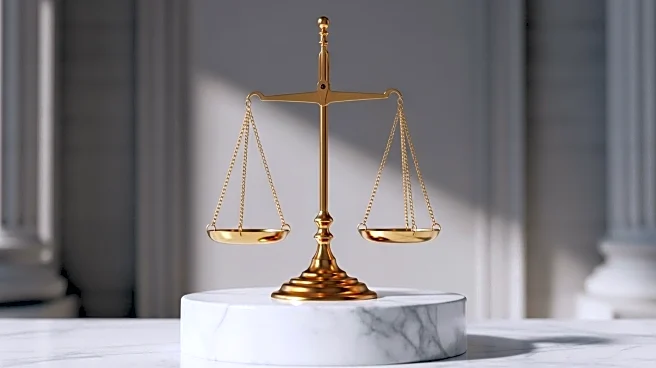What's Happening?
Justice Brett Kavanaugh is advocating for a new term to describe the Supreme Court's emergency docket, suggesting 'interim docket' as a more fitting label. This docket, often referred to as the 'shadow docket,' involves the issuance of brief orders in pending cases without detailed explanations. Kavanaugh's proposal was made during a conference at the US Court of Appeals for the Sixth Circuit in Memphis. He argues that not all requests handled by the docket are emergencies, and the term 'interim docket' better captures its function. Kavanaugh has previously defended the Supreme Court's use of this docket, which has been utilized by President Trump to advance his agenda amidst lower court resistance. He acknowledges the challenges faced by the high court due to congressional inaction, which has led to increased emergency docket requests. Kavanaugh emphasizes the importance of clarity in Supreme Court opinions for lower court judges.
Why It's Important?
The rebranding of the Supreme Court's emergency docket is significant as it addresses concerns about transparency and the court's role in handling urgent legal matters. The term 'shadow docket' has been criticized for its opacity, and Kavanaugh's proposal aims to provide a clearer understanding of the docket's function. This change could impact how the public and legal community perceive the Supreme Court's decision-making process. The emergency docket has been a crucial tool for the Trump administration to implement policies despite legal challenges, highlighting its importance in shaping U.S. policy. The debate over the docket's use reflects broader tensions between the judiciary and executive branches, as well as the challenges faced by lower courts in interpreting Supreme Court orders.
What's Next?
The proposal for a new label may lead to discussions within the legal community and among Supreme Court justices about the terminology and transparency of the emergency docket. Stakeholders, including legal scholars and practitioners, may weigh in on the implications of this change. The Supreme Court may continue to face scrutiny over its use of the emergency docket, particularly in politically charged cases. Future conferences and judicial meetings could further explore the impact of this rebranding on the court's operations and its relationship with lower courts.
Beyond the Headlines
The debate over the Supreme Court's emergency docket touches on deeper issues of judicial independence and the balance of power between branches of government. Critics argue that the docket's use can undermine the independence of agencies and disrupt established legal precedents. The discussion around the docket's label reflects ongoing concerns about the court's role in shaping policy without full legal briefing and argument. This rebranding effort may also influence how future administrations utilize the emergency docket to advance their agendas.











